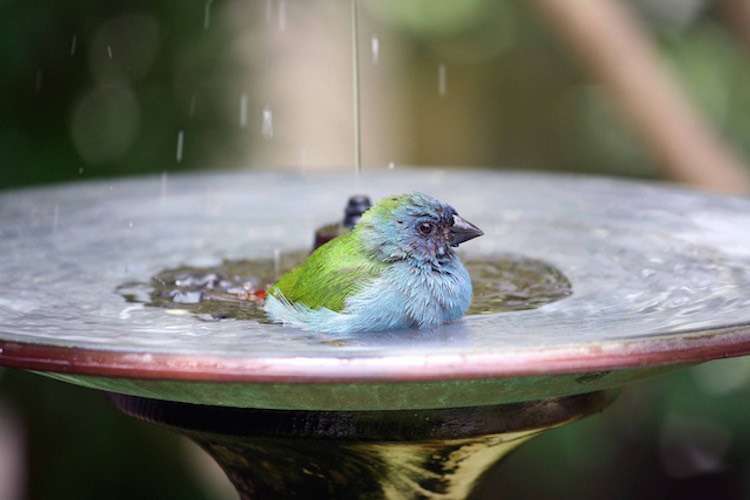When Kids Can't See the Chalkboard - Eye Doctor Donates 100,000 Glasses
Inspired by a Navajo teen's joy when he got his first pair of glasses, Joseph Carbone took a leap of faith by quitting his optician business to start Eye Care 4 Kids.

According to this study, people living in neighborhoods with more birds, shrubs, and trees are less likely to suffer from depression, anxiety and stress.
The study conducted at the University of Exeter, involving hundreds of people, found benefits for mental health of being able to see birds, shrubs and trees around the home, whether people lived in urban or more leafy suburban neighborhoods.
After conducting extensive surveys of the number of birds in the morning and afternoon in Milton Keynes, Bedford, and Luton, the study found that lower levels of depression, anxiety and stress were associated with the number of birds people could see in the afternoon. The academics studied afternoon bird numbers – which tend to be lower than birds generally seen in the morning – because are more in keeping with the number of birds that people are likely to see in their neighborhood on a daily basis.
In the study, common types of birds including blackbirds, robins, blue tits and crows were seen. But the study did not find a relationship between the species of birds and mental health, but rather the number of birds they could see from their windows, in the garden or in their neighborhood.
Previous studies have found that the ability of most people to identify different species is low, suggesting that for most people it is interacting with birds, not just specific birds, that provides well-being.
University of Exeter research fellow Dr. Daniel Cox, who led the study, said: "This study starts to unpick the role that some key components of nature play for our mental well-being.
"Birds around the home, and nature in general, show great promise in preventative health care, making cities healthier, happier places to live."
The positive association between birds, shrubs and trees and better mental health applied, even after controlling for variation in neighborhood deprivation, household income, age and a wide range of other socio-demographic factors.
(Source: University of Exeter) – Photo by Andrea O'Connell
Fly This Story Over To Your Friends: Click To Share
Be the first to comment